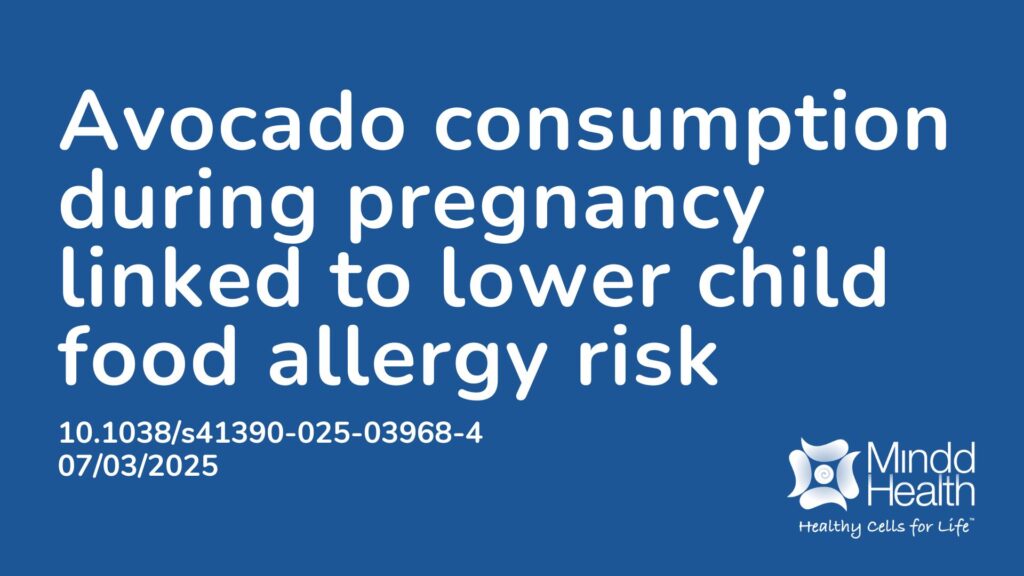Summary:
This prospective cohort study utilizing data from the Kuopio Birth Cohort in Finland investigated the relationship between maternal avocado consumption during pregnancy and the incidence of food allergies in infants at 12 months of age. The study included 2,272 mother-infant pairs who completed dietary assessments during the first and third trimesters of pregnancy. Avocado consumption was determined through an online food frequency questionnaire, categorizing participants as consumers if they reported any intake (>0 grams) in either trimester. The findings revealed that infants born to mothers who consumed avocados during pregnancy had a 43.6% lower odds of developing food allergies at 12 months compared to those whose mothers did not consume avocados. This association remained significant after adjusting for various maternal and perinatal factors, including age, education, body mass index, delivery method, neonatal intensive care admission, breastfeeding duration, alcohol consumption, smoking status, and overall diet quality. These results suggest that incorporating avocados into the maternal diet during pregnancy may be associated with a reduced risk of food allergies in infants at one year of age. Further research is warranted to explore the underlying mechanisms and to determine whether these findings are relatable to other populations.
Abstract:
Background: Maternal exposures during pregnancy play a critical role in offspring’s health outcomes. This study aimed to investigate how maternal avocado consumption during pregnancy relates to offspring allergic health outcomes using the Kuopio Birth Cohort (KuBiCo) Study. Methods: This prospective cohort study used data from KuBiCo. Avocado consumption was assessed using an online food frequency questionnaire in trimesters (T) 1 and 3. Avocado consumers were defined as participants who reported consuming any avocado (>0 grams) in T1 and/or 3, and avocado non-consumers were defined as those who didn’t report consuming any avocado (0 grams) in both T1 and 3. The 12-month follow-up questionnaire captured offspring allergic outcomes (rhinitis, paroxysmal wheezing, atopic eczema, and food allergy). Results: Of 4647 participants, 2272 met the criteria and were included in the analysis. Compared to avocado non-consumers (during pregnancy), avocado consumers (during pregnancy) had 43.6% lower odds of reporting food allergy among their children at the 12-month follow-up questionnaire while adjusted for relevant covariates. No significant associations were noted in the other three allergic health outcomes in the fully adjusted model. Conclusion: Avocado consumption during pregnancy was associated with lower odds of infant food allergies at 12 months, even when accounting for potential covariates.
Article Publication Date: 07/03/2025
DOI: 10.1038/s41390-025-03968-4



